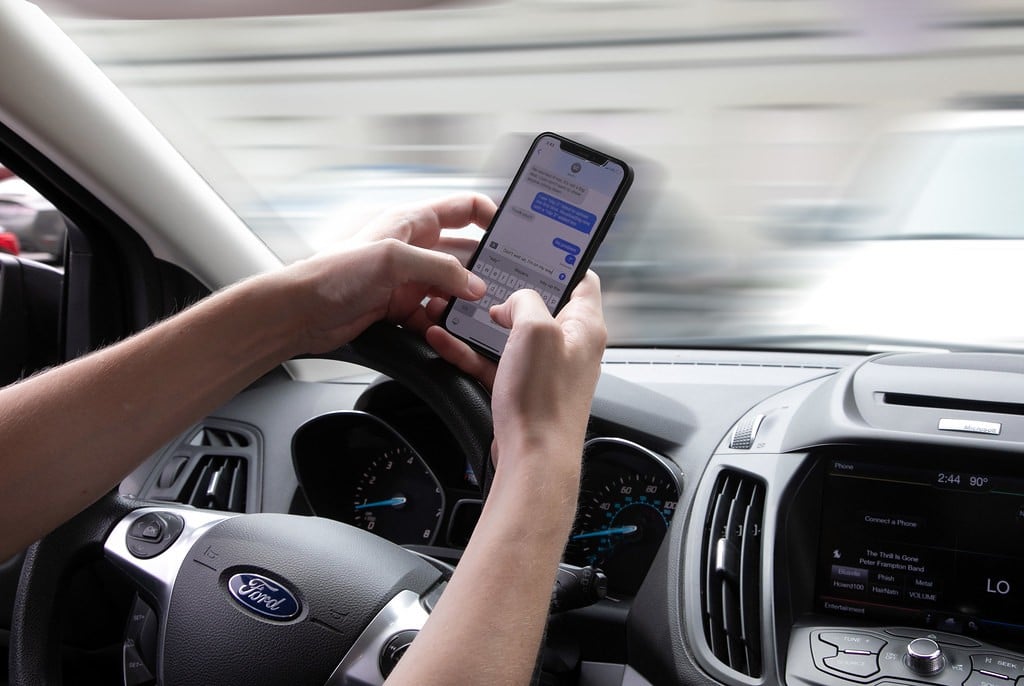Distracted Driving Definition

It took many years, tougher laws, stronger penalties, and unfortunately, plenty of deaths and injuries before most people learned not to get behind the wheel if they’ve been drinking.
Today, although people still commit this crime, overall rates of deaths and injuries have dropped significantly.
Now, the same crackdown is taking place on distracted driving. Drivers using or looking at a mobile device are the biggest offenders, but the distracted driver definition includes anything that takes a driver’s attention away from the road. Even missing something for a few seconds can be potentially deadly for drivers, passengers, or others nearby.
The National Highway Traffic Safety Administration said if you’re going 55 mph, you’ll travel at least 300 feet while looking away for just 5 seconds, about the length of a football field. In a high-traffic environment, pretty much anything can happen, too quickly for you to react safely.
The Centers for Disease Control and Prevention has found that 9 people in the U.S. are killed daily due to distracted drivers. The number of deaths was 3,100 in 2019 and 3,412 in 2020 alone. The number of injuries in 2019 was 424,000, which also included bicyclists and pedestrians.
These statistics are why states like Arizona have made sure to define distracted driving, including passing laws that primarily focus on phone use.
Arizona’s “Hands Off” law passed in 2021 makes it illegal for drivers to use any mobile device while driving unless it’s in hands-free mode. This includes phones, tablets, gaming devices, and GPS devices.
The distracted driving definition specifies illegal activities like taking a call, reading, texting, watching or recording, and also putting it on your shoulder or lap. It also defines legally-acceptable alternatives like earpieces, headphones, or wrist devices, and allows exceptions for emergency situations.
Types of Distractions
Beyond mobile devices, potential distractions can include eating, drinking, putting on make-up, adjusting the radio, turning to talk to passengers, or reaching for something nearby.
There are three categories that define distracted driving:
- Visual (requires you to look away from the road)
- Manual (requires removing your hands from the wheel)
- Cognitive (takes your mind away from the road)
Distracted Driving Consequences
Part of developing a distracted driver definition includes creating penalties. For a few seconds of distraction that can lead to an accident, people can face higher insurance costs, property damage costs, lawsuits, court costs and possible jail time.
Distracted drivers can also face medical treatments, physical therapy and medical bills, plus internal guilt if someone is hurt or killed.
Arizona laws specify more severe punishments depending on the number of offenses or the severity of a situation. First-time violators may be fined between $75 and $149 and may have to attend a traffic survival school or perform community service. They also could face up to 6 months in jail and a 180-day to 1-year license suspension if their violation contributes to serious injury or death.
A second offense within three years or failure to abide by first-time conditions can lead to a longer license suspension, additional jail time and a fine between $150 and $250. Restitution up to $100,00 could be authorized.
Involved in a Distracted Driving Accident?
If you’ve been in an accident that may have stemmed from a distracted driver, the staff at Brad Johnson Injury Law will be happy to discuss current laws and your legal options. Visit us online or call (602) 639-4690.
